Netflix’s Young Wallander may be a show based on a popular Swedish detective novel series set in Malmö, but it was almost entirely shot in Vilnius — the capital of Lithuania.
To celebrate its success, Vilnius has launched a new walking tour that traces the steps of the young detective throughout the Lithuanian capital. But Wallander is not the only iconic character to have featured against a Lithuanian background in recent years, ranging from the kids of Stranger Things to the ensemble of HBO’s Chernobyl.
Here are five additional movie sets in Lithuania that fans may recognise.
Vilnius’ Old Town — a favourite for foreign productions
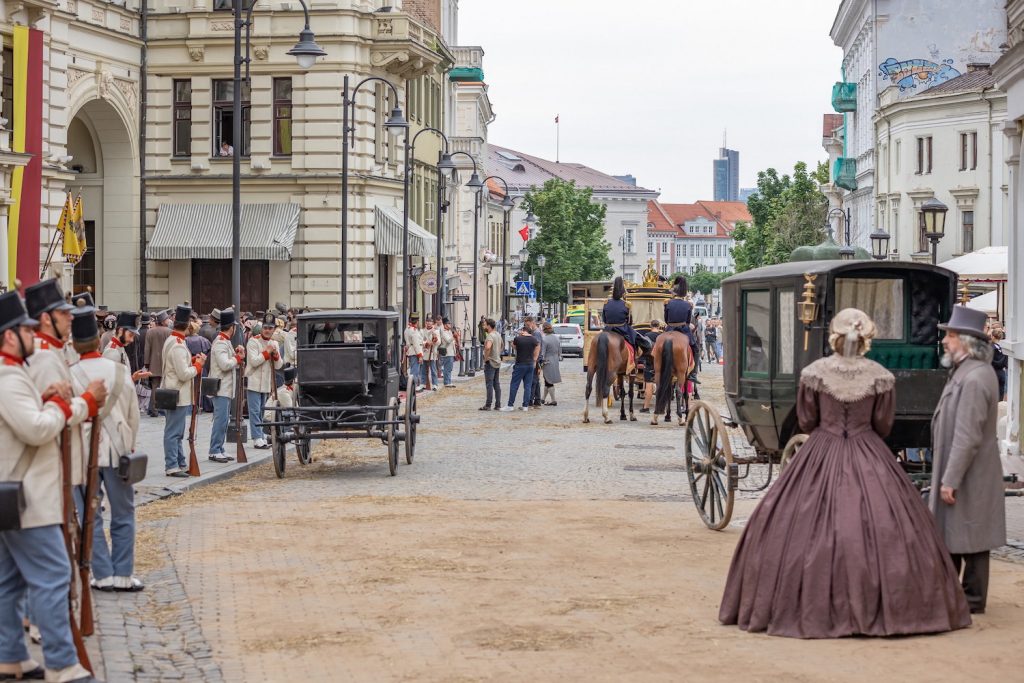
The heritage of Vilnius’ UNESCO-protected Old Town — with its picturesque cobblestone streets, Gothic architecture, and baroque churches — was harnessed by Netflix series The Last Czars in 2019. Czar Nicholas II’s coronation was filmed at the Orthodox Cathedral of the Dormition of Theotokos, where the grandeur and purity of the cathedral is stunningly contrasted with the quaint riverbank of the Vilnelė river. The courtyard of the Church and Monastery of the Holy Trinity, which can be found after passing through the ornate Basilian Gates, is also nearby. When visitors see the characteristic Russian Byzantine architecture, they immediately feel as though they are in the centre of the miniseries.
Echoes from the 1970s
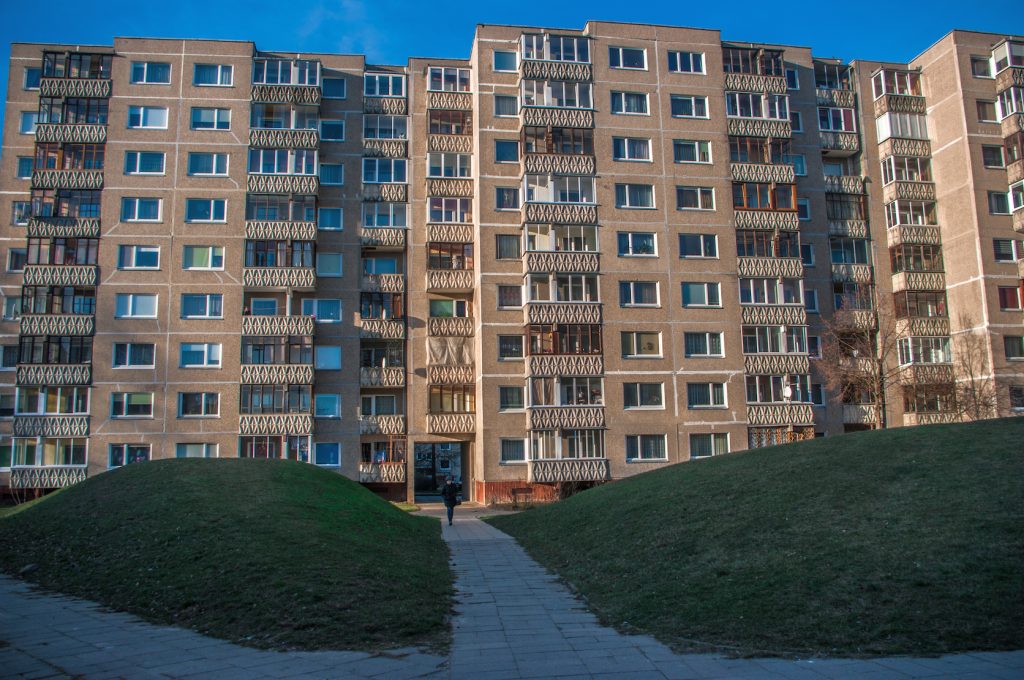
Vilnius lends itself to filmmakers due to its diverse scenery. Young Wallander was filmed almost entirely in the district of Šeškinė, a part of Vilnius known for its Soviet architecture, with cinematic views of the urban landscape stretching as far as the eye can see. Šeškinė is also famous for its ridge, commonly known as the Oz of Šeškinė, carved 16,000 to 18,000 years ago by a glacier. It now offers stunning panoramas of the surrounding hills and treetops.
Lithuanian neo-classicism takes centre-stage
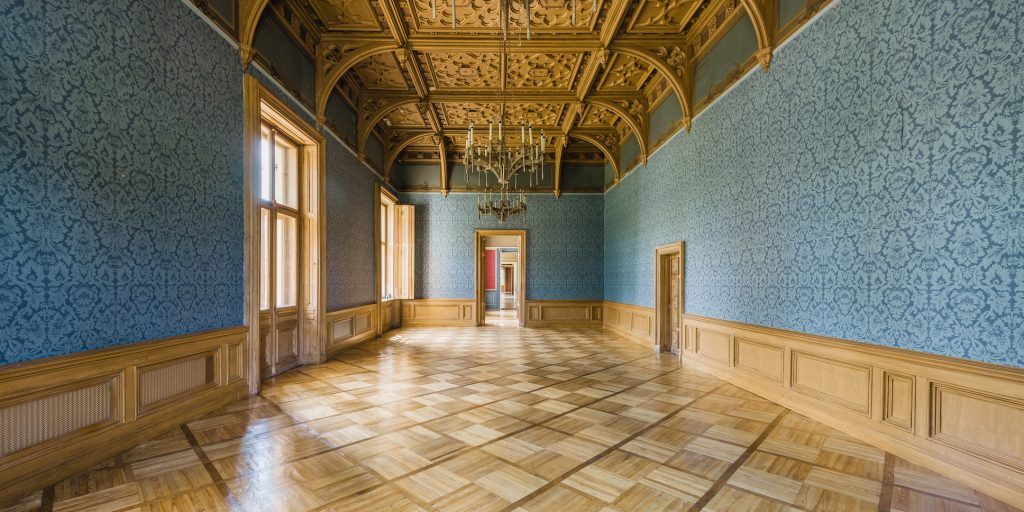
© Trakų Vokė Manor
The Trakų Vokė manor, a grandiose 800-hectare complex erected in the 19th-century, has received particular attention from producers for its luxurious neo-classicist interiors: marble sculptures, intricate wooden and gold finishings, and walls of rich maroon and sage green. The lavish manor also is where HBO’S 2019 film Catherine the Great starring Helen Mirren takes place: all of the scenes that take place in the Empress’s private palace were filmed here.
The epicentre of Interwar period-pieces
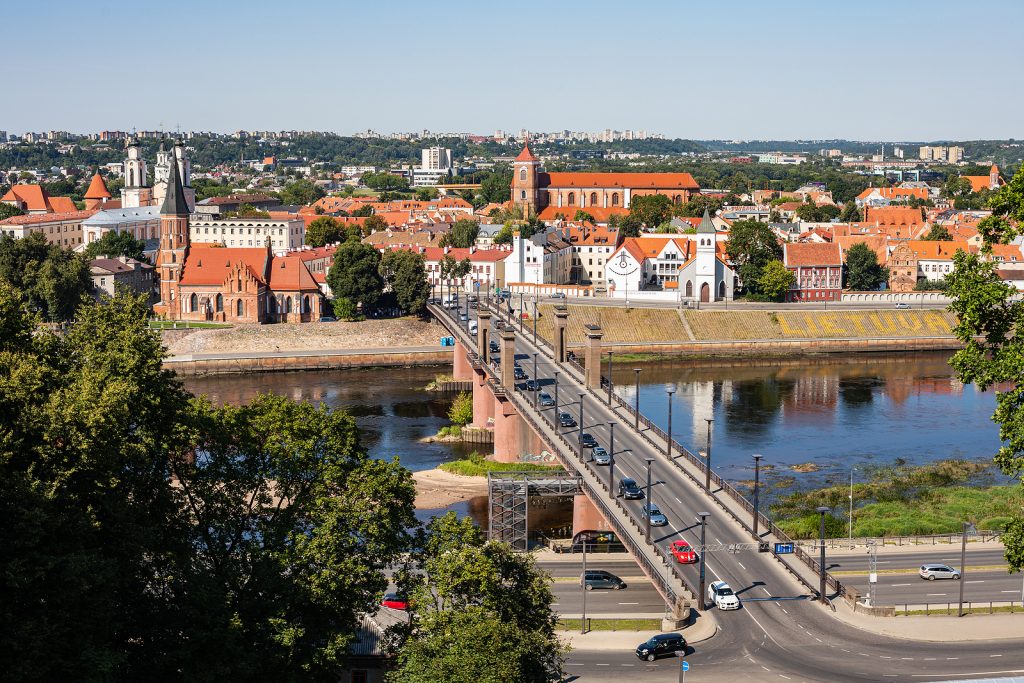
Kaunas, Lithuania’s second-largest city, is renowned for its rich history and Art Deco interwar architectural monuments. This decorative cityscape has become the backdrop for many international productions, including the Emmy-nominated series Tokyo Trial in 2016, which transformed the M. K. Čiurlionis National Art Museum into a Japanese War Tribunal. In addition, the BBC’s The Rise of the Nazis of 2019 featured the Kaunas Garrison Officers’ Club Building, a European Heritage Label site used by the Lithuanian Armed Forces.
19th-century Austria recreated in Rokiškis
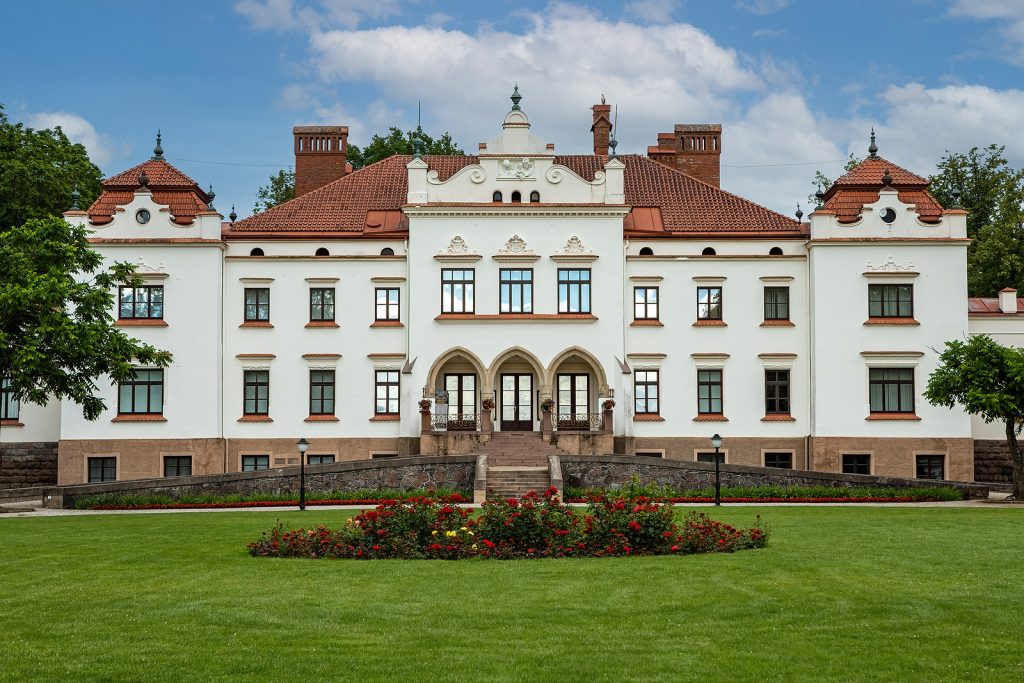
The creators of the German series Sisi found 19th-century Austria in the spell-binding Rokiškis manor in the northwest of Lithuania. The palace, which is the centrepiece of the manor complex, is encircled by a 30-hectare-large historic park with distinctive radial alleyways — the first of its kind in Lithuania. Fans of Sisi can step into the regal atmosphere and get lost in the endless wood-laden hallways and velvet upholstery as they look for traces of the Austrian imperial family here.
Top photo: Helen Mirren in Catherine the Great © Baltic Film Services. All photos courtesy Lithuania Travel, Lithuania’s tourism marketing and promotion agency.
Unlike many news and information platforms, Emerging Europe is free to read, and always will be. There is no paywall here. We are independent, not affiliated with nor representing any political party or business organisation. We want the very best for emerging Europe, nothing more, nothing less. Your support will help us continue to spread the word about this amazing region.
You can contribute here. Thank you.


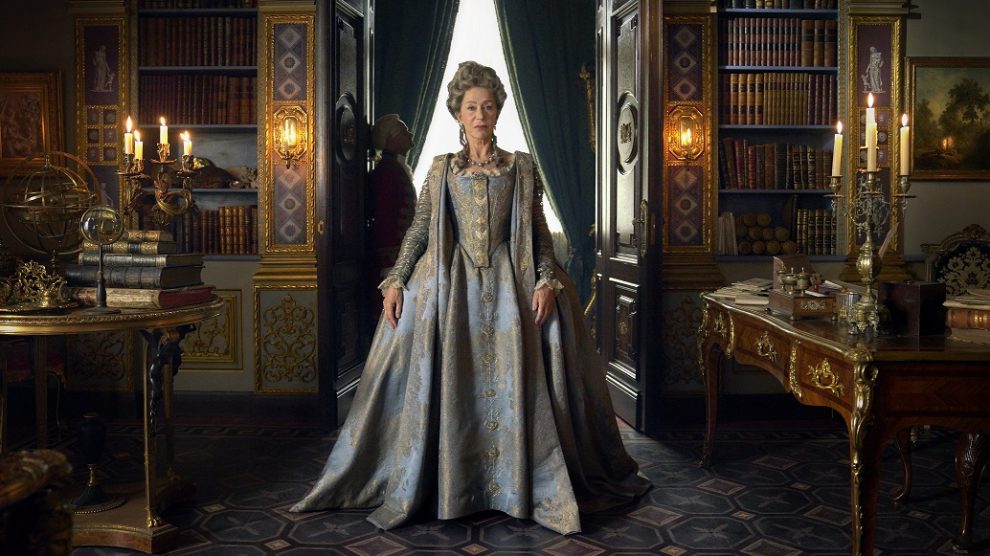




Add Comment